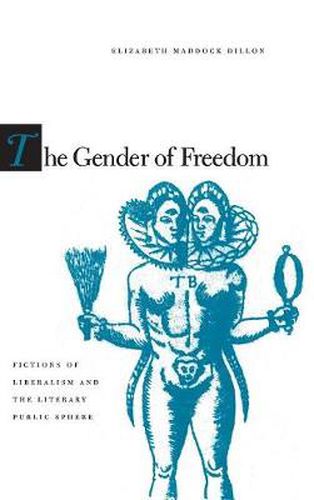Readings Newsletter
Become a Readings Member to make your shopping experience even easier.
Sign in or sign up for free!
You’re not far away from qualifying for FREE standard shipping within Australia
You’ve qualified for FREE standard shipping within Australia
The cart is loading…






In a sweeping reassessment of early American literature, The Gender of Freedom explores the workings of the literary public sphere-from its colonial emergence through the antebellum flourishing of sentimentalism. Placing representations of and by women at the center rather than the margin of the public sphere, this book links modern forms of political identity to the seemingly private images of gender displayed prominently in the developing public sphere. The fictions of liberalism explored in this book are those of marriage and motherhood, sentimental domesticity, and heterosexual desire-narratives that structure the private realm upon which liberalism depends for its meaning and value. In a series of bold theoretical arguments and nuanced readings of literary texts, the author explores the political force of these private narratives with chapters on the Antinomian crisis in Puritan Massachusetts, early national models of gender and marriage in the works of Charles Brockden Brown and Hannah Webster Foster, infanticide narratives and nineteenth-century accounts of motherhood in the work of Harriet Beecher Stowe and Lydia Maria Child, and re-arranging marriage in the poetry of Emily Dickinson.
$9.00 standard shipping within Australia
FREE standard shipping within Australia for orders over $100.00
Express & International shipping calculated at checkout
In a sweeping reassessment of early American literature, The Gender of Freedom explores the workings of the literary public sphere-from its colonial emergence through the antebellum flourishing of sentimentalism. Placing representations of and by women at the center rather than the margin of the public sphere, this book links modern forms of political identity to the seemingly private images of gender displayed prominently in the developing public sphere. The fictions of liberalism explored in this book are those of marriage and motherhood, sentimental domesticity, and heterosexual desire-narratives that structure the private realm upon which liberalism depends for its meaning and value. In a series of bold theoretical arguments and nuanced readings of literary texts, the author explores the political force of these private narratives with chapters on the Antinomian crisis in Puritan Massachusetts, early national models of gender and marriage in the works of Charles Brockden Brown and Hannah Webster Foster, infanticide narratives and nineteenth-century accounts of motherhood in the work of Harriet Beecher Stowe and Lydia Maria Child, and re-arranging marriage in the poetry of Emily Dickinson.